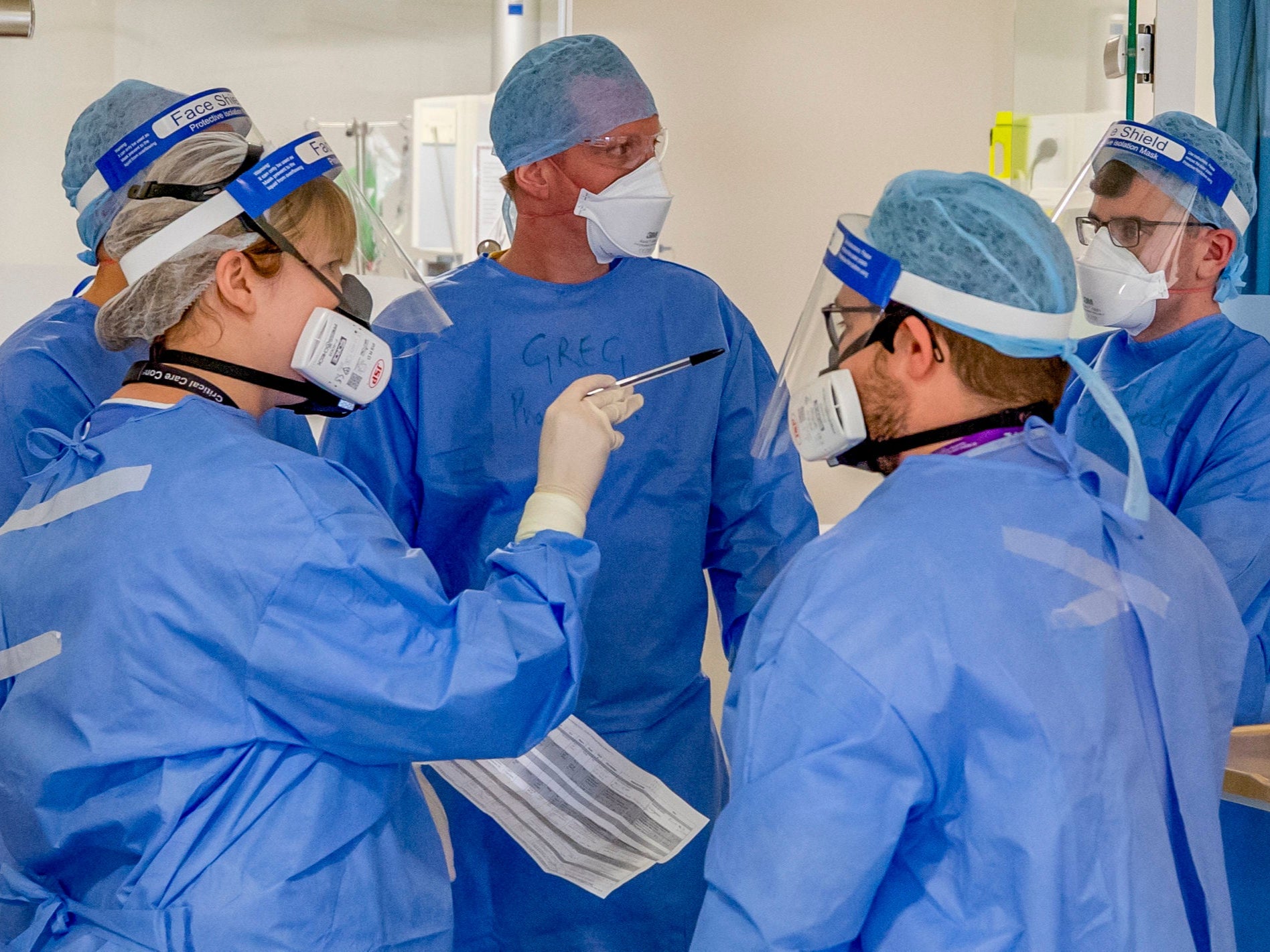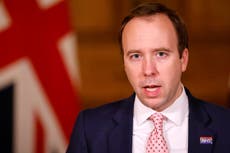Thousands of doctors warn NHS will struggle to cope with ‘incredible demand’ as Covid infections soar
Health leaders welcome tightened restrictions as ‘necessary step’ amid growing fears for NHS

Your support helps us to tell the story
From reproductive rights to climate change to Big Tech, The Independent is on the ground when the story is developing. Whether it's investigating the financials of Elon Musk's pro-Trump PAC or producing our latest documentary, 'The A Word', which shines a light on the American women fighting for reproductive rights, we know how important it is to parse out the facts from the messaging.
At such a critical moment in US history, we need reporters on the ground. Your donation allows us to keep sending journalists to speak to both sides of the story.
The Independent is trusted by Americans across the entire political spectrum. And unlike many other quality news outlets, we choose not to lock Americans out of our reporting and analysis with paywalls. We believe quality journalism should be available to everyone, paid for by those who can afford it.
Your support makes all the difference.Thousands of doctors have expressed fears about their capacity to cope with the “incredible demand” facing the health service as they warn coronavirus levels in hospitals are higher than they were at the same point in the first wave of the pandemic.
A survey of almost 8,000 doctors and medical students from across England, Wales and Northern Ireland conducted last week reveals the mounting pressure on the NHS, as health leaders welcomed the tightening of restrictions over the Christmas period as a “necessary step”.
The results paint a picture of a health service struggling to cope with both the direct impact of Covid-19 and the significant backlog of other treatments put on hold by the pandemic, with doctors distressed about not being able to provide the levels of care they want to.
Published by the British Medical Association (BMA), the findings show that more than half (52 per cent) of respondents said they had seen a significant increase in the number of Covid cases in the last two weeks, with one in three (34 per cent) warning that current levels were higher than during the same point during the first wave.
A third meanwhile said the level of demand for care of patients without the virus was now considerably higher than before the pandemic began, and 88 per cent said they felt uneasy that they could not provide the standard of care they wanted during the pandemic.
The survey was conducted before Boris Johnson’s dramatic announcement on Saturday, in which he ordered a strict new lockdown for vast swathes of southeast England and London.
The move to abandon the government’s original five-day relaxation of measures between 23 and 27 December came in light of a new variant of coronavirus that is up to 70 per cent more transmissible than the original.
BMA council chair Dr Chaand Nagpaul welcomed the announcement, saying that although it was “hugely disappointing” for many, it was “absolutely the right decision and one which will save lives”.
Warning that the NHS was “already at the point of collapse”, with many hospitals full to capacity at the start of the busy winter period, he said tougher measures would give the health service a “fighting chance” to cope with the “incredible” demand.
“Doctors are telling us they’re already seeing significant increases in the number of Covid and non-Covid patients, and that they don’t believe their hospitals or practices will be able to cope in the new year,” Mr Nagpaul said.
“Whether it’s Covid or cancer, we are extremely worried that there may not be the capacity in our health service to provide care for everyone who needs it if the infection rates continue to soar.”
It comes after NHS England bosses warned that London would run out of hospital beds within weeks if coronavirus admissions continued at their current rate, with the number of patients needing critical care in the capital having increased by almost 9 per cent in a day earlier this week.
In response to the surge, hospitals across the capital have started to cancel operations and are redeploying nurses and doctors to cope with an expected increase in demand.
The latest NHS data shows London had 2,726 patients with coronavirus in hospital on Friday, equivalent of 13 per cent of the capital’s beds. This is more than half of the peak seen on 8 April, when there were 5,175 Covid-19 patients in London.
There are now also more patients in hospital with coronavirus in England than during the peak of the second wave in November, with the latest data showing there were 15,698 patients in hospital with Covid-19 on Thursday morning, compared with 14,467 during the November peak.
A government spokesperson said: “We are supporting the NHS and have committed to £450 million this winter to expand A&Es and £3bn to maintain independent sector support, and Nightingale hospital surge capacity over winter and support safe discharge from hospitals.
“The increasing infection rate and subsequent pressure this will put our NHS under is concerning, and we rightly took immediate action yesterday by moving the highest risk areas into Tier 4.
“It is vital people continue to act responsibly, follow the rules and remember ‘hands, face, space’ – only by doing this can we all play our part in minimising the transmission risk.”




Join our commenting forum
Join thought-provoking conversations, follow other Independent readers and see their replies
Comments